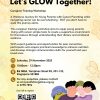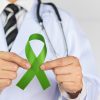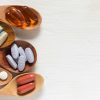Let’s look at the five common lifestyle practices which may reduce cancer risks.
1. Soy Products versus Cancer Risk
| Explanation | The current evidence says that breast cancer survivors can safely eat soy products. Emerging research suggests that soy foods may decrease the likelihood of breast cancer recurrence in women with a history of the disease.
Soy products appear to be safe and possibly beneficial for female breast cancer survivors, as the phytoestrogens in soy products are different from female estrogen; hence they have no impact on breast cancer survivors. |
| Suggestion | – Incorporate soy products in daily diet (tofu, taukwa, tempeh, unsweetened soy milk, unsweetened soybean curd, edamame) |
2. Red Meat versus Cancer Risk
| Explanation | Consumption of red meat is probably a cause of colorectal cancer (daily consumption of 100g of red meat increases the risk of colorectal cancer by 17%).
* Red meat: mammals with four legs (pork, beef, mutton) World Health Organization claims red meat as Class 2A carcinogen (probable cause of cancer) |
| Suggestion | – Do not need to avoid red meat completely as it is a good source of protein, iron, zinc and Vitamin B12
– Limit consumption to no more than about three portions per week. Three portions is equivalent to about 350–500g cooked weight |
3. Burnt Food versus Cancer Risk
| Explanation | Acrylamide will be produced from starchy food (toast, potato) during long cooking time.
Heterocyclic Amines (HCAs) and Polycyclic Aromatic Hydrocarbons (PAHs) will be produced from meat or poultry when cooking at high temperatures and long duration. World Health Organization claims these compounds as Class 2A carcinogen (probable cause of cancer) |
| Suggestion | – Bake, toast or roast starchy food until yellow-brown or just cooked
– Suggest avoid direct exposure of meat and poultry to open flame, avoid prolonged cooking time, remove charred portions and avoid consuming gravy from meat drippings |
4. Coffee versus Cancer Risk
| Explanation | Studies have suggested that coffee consumption likely reduces risk of liver and endometrial cancers, due to the presence of caffeine, flavonoids, lignans and polyphenols – possess anti-inflammatory effect and inhibit cellular damage |
| Suggestion | – Daily maximum safe intake of caffeine is 400mg (equivalent to 4 cups of coffee)
– Limit added sugar and creamer intake, while monitor symptoms of caffeine consumption (if any) |
5. Vegetarian Diet versus Cancer Risk
| Explanation | Many studies of vegetarians indicate a lower risk of cancer overall relative to people who also eat meat due to low saturated fat intake and high intake of dietary fibres and vitamins. Vegetarian diets may be beneficial for cancer risk reduction. |
| Suggestion | – Vegetarianism is optional
– Lean protein should be included in every main meal that is prepared in low-fat cooking methods. |
References:
- Department of Health and Human Services, Office of Disease Prevention and Health Promotion (2018). Eat healthy, be active: Community workshops. Skyhorse.
- International Agency for Research on Cancer. (n.d.). Cancer topics. https://www.iarc.who.int/cancer-topics/
- Rock, C. L., Thomson, C., Gansler, T., Gapstur, S. M., McCullough, M. L., Patel, A. V., Andrews, K. S., Bandera, E. V., Spees, C. K., Robien, K., Hartman, S., Sullivan, K., Grant, B. L., Hamilton, K. K., Kushi, L. H., Caan, B. J., Kibbe, D., Black, J. D., Wiedt, T. L., . . . Doyle, C. (2020). American Cancer Society guideline for diet and physical activity for cancer prevention. CA: A Cancer Journal for Clinicians, 70(4), 245–271. https://doi.org/10.3322/caac.21591
- World Cancer Research Fund International. (2022, April 21). Cancer prevention recommendations. https://www.wcrf.org/diet-activity-and-cancer/cancer-prevention-recommendations/
Related content:





